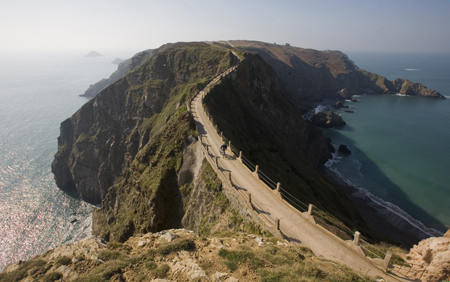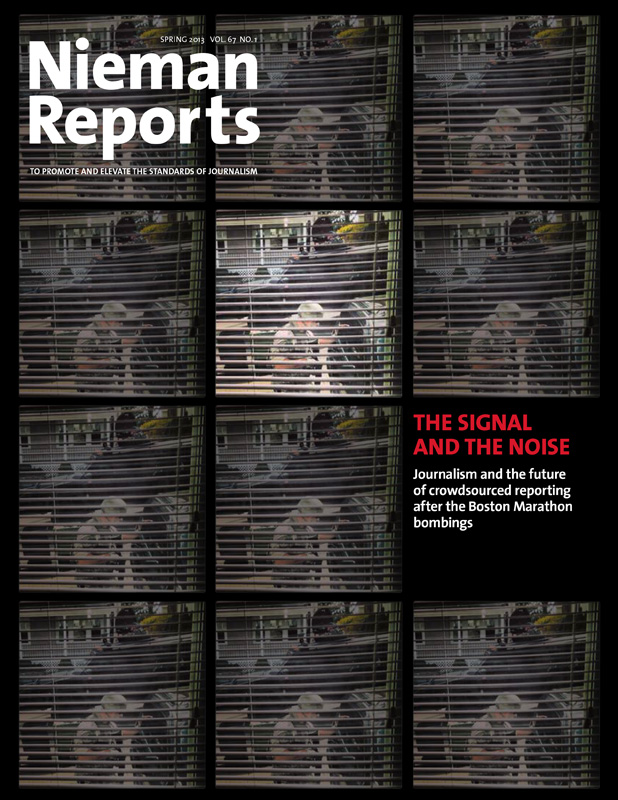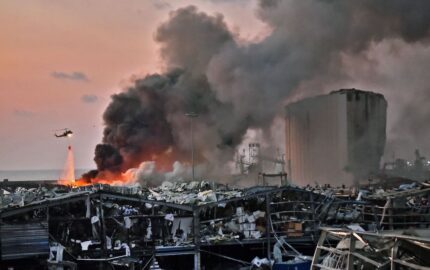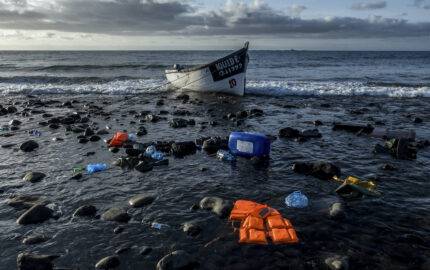“Secrecy for Sale: Inside the Global Offshore Money Maze,” a project of the International Consortium of Investigative Journalists (ICIJ), involved about 86 journalists in 46 countries. The investigation started with a hoard of 2.5 million secret files related to 10 offshore centers that the ICIJ received from an anonymous source. That was too much for any one newsroom to tackle. But with reporters from around the world collaborating, the work was divided up.
My involvement with the project began when the ICIJ asked the Romanian Center for Investigative Journalism (RCIJ), which I direct, to act as a reporting hub, mainly for Eastern Europe. Our role in Bucharest was not only to conduct our own story research but also to share data with 28 reporters from other countries in the region, including Moldova, Belarus, Hungary, Ukraine and Turkey, among others.
With each international cross-border project, I learn the same lesson: There are too few watchdog reporters. You find yourself turning to people with whom you have collaborated in the past and whose work and ethics you know are solid.

An ICIJ report identified Sark Island, off the coast of France, as a key location in the secretive world of offshore finance. Photo by Martin Arlges/© Guardian News & Media Ltd 2009
The first problem we faced was how to understand the more than 200 gigabytes of unstructured data. The ICIJ supplied sophisticated data-mining software donated by the Australian firm NUIX. I initially found it of little use. My old computer simply could not cope with the size of the data set, and it crashed nearly every day. I was forced to buy a more powerful machine. I knew other journalists would encounter similar difficulties. How could we scale the solution for scores of reporters?
An added complication was the secretive nature of the project and the need to minimize data exchange to protect sources. We initially communicated using encrypted e-mail but quickly found that this hindered rather than helped group communication. The communication solution eventually arrived in the form of a secure online open-source forum provided by Sebastian Mondial, a colleague in Germany.
For a project like this to succeed, you must prepare and test a toolbox for secure sharing, communication and search before reaching out to a wider team. Then you must invest trust and share as much data as possible.
We acted as if we were part of a virtual newsroom, but we had none of the benefits of a real newsroom. For various reasons, the RCIJ did much of the initial research for our colleagues. That ended in late 2012 when the ICIJ introduced an online research tool.
Throughout the process, communication was key, yet it also consumed a lot of time that could have been spent chasing stories. There was also the issue of what type of stories to chase. What makes news in Russia, for instance, is very different from what makes news in America. We grappled with many different journalistic cultures when it came to deciding what was important and what was not.
We learned not to impose certain story lines. If the local journalist doesn’t see it your way, he or she won’t pursue it. When working across borders, you also need to consider language barriers. Trust local knowledge, build on that, and be patient.
Data collections such as the one supplied by the ICIJ are a treasure trove of information for journalists in Eastern Europe, where access to information is difficult even at the best of times.
This unprecedented collaboration also revealed the need for professional senior editors and new editorial platforms. We lack both in most of Eastern Europe. In a lot of the countries, existing media offer no editorial space for such in-depth stories. This is why the Romanian Center for Investigative Journalism is creating an online magazine in English for the Black Sea region as a place to showcase watchdog journalism.
Stefan Candea, a 2011 Nieman Fellow, is director of the Romanian Center for Investigative Journalism.
MORE ON WATCHDOG REPORTING
From Shoe Leather to Big Data: ProPublica and the Future of Watchdog Journalism
By Robin Fields
Ask The Right Questions: MuckRock Makes FOIA Requests Easy
By Michael Morisy
Truth or Consequences: Where is Watchdog Journalism Today?
By Dan Froomkin
No Profession for Lone Wolves: Watchdog Reporters Need to Work Together
By Stuart Watson
Let the Readers Know: How Journalists and the Public Can Work Together
By Ken Armstrong
In Korea, Watchdog Journalism Worth Watching on Television
By Chong-ae Lee
Do the Right Thing: Watchdog Reporters Handle a Bombing in Philadelphia
By William Marimow
Our Communities Crave Watchdog Journalism
By Raquel Rutledge
My involvement with the project began when the ICIJ asked the Romanian Center for Investigative Journalism (RCIJ), which I direct, to act as a reporting hub, mainly for Eastern Europe. Our role in Bucharest was not only to conduct our own story research but also to share data with 28 reporters from other countries in the region, including Moldova, Belarus, Hungary, Ukraine and Turkey, among others.
With each international cross-border project, I learn the same lesson: There are too few watchdog reporters. You find yourself turning to people with whom you have collaborated in the past and whose work and ethics you know are solid.

An ICIJ report identified Sark Island, off the coast of France, as a key location in the secretive world of offshore finance. Photo by Martin Arlges/© Guardian News & Media Ltd 2009
The first problem we faced was how to understand the more than 200 gigabytes of unstructured data. The ICIJ supplied sophisticated data-mining software donated by the Australian firm NUIX. I initially found it of little use. My old computer simply could not cope with the size of the data set, and it crashed nearly every day. I was forced to buy a more powerful machine. I knew other journalists would encounter similar difficulties. How could we scale the solution for scores of reporters?
An added complication was the secretive nature of the project and the need to minimize data exchange to protect sources. We initially communicated using encrypted e-mail but quickly found that this hindered rather than helped group communication. The communication solution eventually arrived in the form of a secure online open-source forum provided by Sebastian Mondial, a colleague in Germany.
For a project like this to succeed, you must prepare and test a toolbox for secure sharing, communication and search before reaching out to a wider team. Then you must invest trust and share as much data as possible.
We acted as if we were part of a virtual newsroom, but we had none of the benefits of a real newsroom. For various reasons, the RCIJ did much of the initial research for our colleagues. That ended in late 2012 when the ICIJ introduced an online research tool.
Throughout the process, communication was key, yet it also consumed a lot of time that could have been spent chasing stories. There was also the issue of what type of stories to chase. What makes news in Russia, for instance, is very different from what makes news in America. We grappled with many different journalistic cultures when it came to deciding what was important and what was not.
We learned not to impose certain story lines. If the local journalist doesn’t see it your way, he or she won’t pursue it. When working across borders, you also need to consider language barriers. Trust local knowledge, build on that, and be patient.
Data collections such as the one supplied by the ICIJ are a treasure trove of information for journalists in Eastern Europe, where access to information is difficult even at the best of times.
This unprecedented collaboration also revealed the need for professional senior editors and new editorial platforms. We lack both in most of Eastern Europe. In a lot of the countries, existing media offer no editorial space for such in-depth stories. This is why the Romanian Center for Investigative Journalism is creating an online magazine in English for the Black Sea region as a place to showcase watchdog journalism.
Stefan Candea, a 2011 Nieman Fellow, is director of the Romanian Center for Investigative Journalism.
MORE ON WATCHDOG REPORTING
From Shoe Leather to Big Data: ProPublica and the Future of Watchdog Journalism
By Robin Fields
Ask The Right Questions: MuckRock Makes FOIA Requests Easy
By Michael Morisy
Truth or Consequences: Where is Watchdog Journalism Today?
By Dan Froomkin
No Profession for Lone Wolves: Watchdog Reporters Need to Work Together
By Stuart Watson
Let the Readers Know: How Journalists and the Public Can Work Together
By Ken Armstrong
In Korea, Watchdog Journalism Worth Watching on Television
By Chong-ae Lee
Do the Right Thing: Watchdog Reporters Handle a Bombing in Philadelphia
By William Marimow
Our Communities Crave Watchdog Journalism
By Raquel Rutledge



